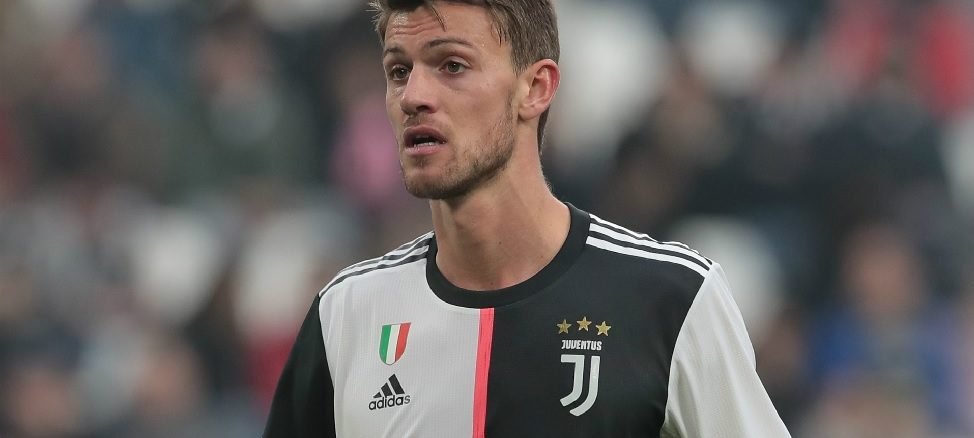
It might be one of the most-watched leagues in global soccer but fears over the rapidly spreading coronavirus have prompted Italian Prime Minister Giuseppe Conte to put the Serie A season, along with all other sporting activities, on hold until at least the 3rd April.
The decision was already made before there was the first confirmed case of a Serie A player being infected with the virus. It’s Daniele Rugani, defender of Juventus, who was on the bench for the match against Inter Milan 3 days ago.
The whole Juventus team is now in quarantine, as well as Inter Milan who were their opponents last weekend. The match was played behind closed doors, but due to Rugani’s situation, the ‘Nerazzurri’ took preventive measures.
Besides Juventus and Inter Milan, also Arsenal and Real Madrid players have been put under quarantine. The ‘Gunners’ have been in contact with Olympiakos president, who has tested positive for the virus.
The Greek team played against Arsenal last Thursday and the chairman visited the Gunners locker room.
Real Madrid has also been put under isolation after a player from the basketball team has been confirmed to have the new coronavirus.
The Premier League has not taken the same measures as its counterpart in Italy, although some games have been postponed. La Liga has confirmed the suspension of its next two weekend matchdays and several Europa League matches have been postponed, including Roma x Sevilla and Inter x Getafe.
How have we come to this?
The coronavirus – otherwise known as Covid-19 – first surfaced in Wuhan City, China on 31st December. Despite best attempts by the Chinese government and the World Health Organisation (WHO) to ring-fence the virus, by the 8th January cases were being reported outside of China with the death toll starting on the 11th.
The spread has gained traction over the first two months of the year with Italy suffering the highest death rates in Europe. The latest figures revealing the nation has over 10,000 confirmed cases and nearly 500 deaths. Be aware that the disease ‘arrived’ officially to the country just 3 weeks ago.
In an attempt to limit the spread one of the decisions taken – along with a nationwide quarantine – was to place sporting venues, which hold tens of thousands of people in close proximity, under lockdown.
Some of the biggest games in the Italian soccer calendar – such as Juventus’ 2-0 win over Inter Milan – were forced to be played behind closed doors.
Now though, the matter has escalated and all fixtures have been postponed until at least April.
Have other leagues been impacted?
Of the five major leagues, Italy is the only country to have postponed the entire calendar. Spain, as mentioned, has suspended its league for the next two weekends, especially after the Real Madrid situation.
France have announced that matches in their respective top divisions will be played without fans allowed in the stadium. However, as witnessed yesterday in the Champions League match between PSG and Borussia Dortmund, the fans gathered outside the stadium, which in itself can be as worse.
In Germany, the decision making appears to be on a case by case basis; for example, Borussia Monchengladbach versus Cologne was played behind closed doors. Other ties have been confirmed where fans will be welcome, which was the case as RB Leipzig knocked Tottenham out of the Champions League last night.
The Netherlands Eredivisie has also suspended its games until the 31st of March and the Portuguese Liga NOS also did the same, for an undefined period.
Premier League should follow the same path?
Finally, there is the Premier League in England where there hadn’t made any moves other than to ban the pre-match handshake. Breaking news has seen this evening’s clash between Man City and Arsenal postponed over concerns some of the Gunners squad might be carrying the virus.
Evangelos Marinakis – the owner of Nottingham Forest and Olympiakos, who dumped Mikel Arteta’s men out of the Europa League a fortnight ago – has been confirmed to be infected and several of the Arsenal squad came into contact with him when the sides met so are having to self-isolate as a precaution.
The intention to block fans from entering grounds is a decision taken with the best interest of society at its heart but, in reality, it doesn’t solve much – if anything.
Fans are still gathering outside of stadiums and in local bars but, beyond that, the players don’t want to play their games with no atmosphere and as calls grow from within the game a full postponement of fixtures doesn’t seem out of the equation.
What happens next?
Delaying the fixtures is the easy part of this process. What comes next is much more of a headache for the authorities though as they’ll be faced with a decision to either fulfill the full schedules or to call a premature end to the campaign.
In Italy, a three-option debate has been muted and it’s feasible a similar decision will have to be taken across Europe. Option one is to end the season now with teams in their current positions.
This would, of course, cause outrage for anyone who is still in with a fighting chance of winning a title, claiming European football or escaping relegation – for that reason, it looks unlikely.
An alternative approach could see teams in with a chance of significantly altering their season outcome entering a ‘play-off’ style tournament. Whilst this seems like a better approach a line will have to be drawn somewhere.
Surely the English FA couldn’t seriously consider letting Liverpool and Manchester City play-off for the title purely for the fact the Merseyside club don’t mathematically have it won? Then there is option three, which is to write the season off. Null and void.
There is one more potential way this all plays out though, which is to see the season through to it’s end. It’s plausible but the teams will either have matches bunched together, which will heighten fatigue and risk of injury, or the end date of the season will be pushed back.
Ordinarily, the latter wouldn’t be a huge issue but Euro 2020 looms.
How will Euro 2020 be affected?
In any other year, the European Championships would be hosted in one or maybe two places but not 2020. This is the year of the revamped tournament that sees 12 different cities in 12 different countries play host. The first? Rome on June 12th.
The tournament is still a few months away with the WHO predicting the coronavirus peak to occur over the next few weeks. So, it is quite possible the panic and sensationalist scaremongering may have died down by then and we can crack on with some soccer.
That said, it’s also possible that Euro 2020 doesn’t happen at all or might happen next year. Same as the Olympics.
For now, health comes first, so try to take the precaution necessary and avoid crowded spaces, watching sports events at home on TV.




Be the first to comment